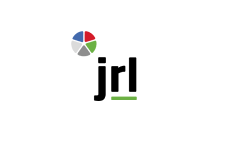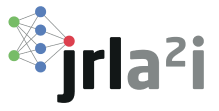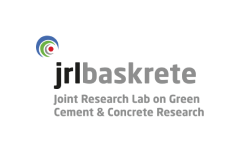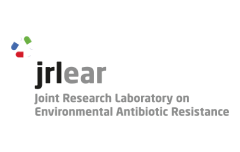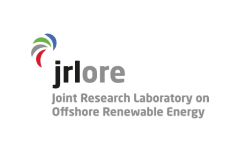
JRL
JRL Joint Research Laboratory

What is a JRL?
A Joint Research Laboratory is a formula for collaboration first established in 2016 between Tecnalia and the UPV/EHU, and open to the participation of other knowledge and research institutions in the Basque Country. The formula was implemented through an institutional agreement between Tecnalia, the UPV/EHU and the BCAM to create a JRL in the field of Data Analytics. From that moment on, Euskampus Fundazioa incorporated the JRL formula as one of the most solid cooperation mechanisms within the framework of the Knowledge Hub Community.
We define a JRL as a “wall-less laboratory” that houses a stable programme of cooperation shared by bodies (groups/departments/divisions/institutes/etc.) that belong to the institutions that make up the Board of Trustees of Euskampus Fundazioa and that is open to the concurrence of the capacities of the Basque Science, Technology and Innovation System, geared towards tackling global and social challenges through higher education, research and the transfer of knowledge.
There is not just one type of, and it can be configured on a case-by-case basis to suit the scenario and specific challenges it is set up to deal with.
JRL ORE
The Joint Research Laboratory on Offshore Renewable Energy is composed of researchers from TECNALIA, BCAM, and UPV/EHU. The objective of this JRL is to facilitate interaction among different groups involved in marine energy in the Basque Country. They focus their activities on wave energy, applied mathematics for offshore wind energy, and the design of tools for ocean energy technologies.
JRL BASKRETE
BASKRETE, The nano cement laboratory develops technology for cement and derived products with lower CO2 emissions thanks to a lower consumption of natural resources and energy, with improved performance and new functionalities, such as energy storage, sensory systems, electric conductivity and superinsulation.
JRL EAR
The Joint Research Lab on ENVIRONMENTAL ANTIBIOTIC RESISTANCE aims to promote and lead scientific research and knowledge transfer regarding the increasing antibiotic resistances and the associated risks to environmental and human health.
JRL APD
The JRL APD (Joint Research Lab Applied Pharma devices) is a joint initiative between the NanoBioCel research group at the University of the Basque Country and the Tecnalia corporation. One of the JRL's top priorities is the establishment of a bioprinting service that enables the creation of three-dimensional structures of organs and tissues, as well as pharmaceutical forms obtained through additive manufacturing technologies.
JRL A2I
The Joint Research Laboratory on Applied Artificial Intelligence (JRL-A2I) is a collaborative initiative between Tecnalia, the Basque Center for Applied Mathematics (BCAM), and the University of the Basque Country (UPV/EHU). It brings together experts from diverse fields, such as computer science, engineering, mathematics, and social sciences. By leveraging their collective expertise, they tackle complex real-world challenges and develop practical AI solutions that address societal needs.
Minimum conditions for submitting a proposal for a JRL
- Must have a proven track record of collaboration* of at least 2 years.
- There must be a significant collaborative opportunity that requires a stable, long-term programme.
- In any event, there must first be a clear focus on collaboration between research groups through projects or other activities (theses, academic activities, joint publications, joint international positioning) and a response to the challenges of an Euskampus Knowledge Hub.
- The group promoting the JRL should include at least 10 researchers (in the JRL as a whole, not necessarily 10 from each institution) who are recognised for their excellence within their institutions and, in general, based on canonical indicators.
- The UPV/EHU and Tecnalia (and the DIPC in the relevant areas) should be involved in the JRL in a relevant way (co-leadership, providing researchers, key skills, etc.)..
- The JRL should be able to draw up a strategic collaboration agenda for at least three years, with clearly stated objectives, well-defined lines of action and with well-identified outcomes and performance indicators in a balanced scorecard.
- The issue promoted should have the potential to be transferred to society and/or the business fabric.
- It should be international in scope (identifying European and international public or private calls for proposals for research projects with a high potential).
- It should be aligned with and contribute to the current Science, Technology and Innovation Plan (PCTI).
Procedure for submitting and approving a proposal for a JRL
The creation of an Euskampus JRL is ultimately the decision of the institutions to which the bodies/individuals that constitute it belong. Consequently, it needs to have their approval and follow each institution's normal internal procedures for signing the agreement to set it up and run it.
The following procedure is proposed:
Opportunity analysis: The group promoting the JRL first needs to submit a proposal to Euskampus Fundazioa, which needs to be in line with the challenges of a Knowledge Hub and set up as an instrument for tackling these challenges in collaboration. An opportunity analysis will be carried out by Euskampus and the Euskampus-Tecnalia Operational Team.
Decision-making by the Board: Euskampus Fundazioa will first contact the institutions on its Board of Trustees to inform them of the intention to create the JRL and so that they can assess the opportunity it offers. The approval of the Commission of the UPV/EHU - Tecnalia Framework Agreement (and possibly of the DIPC where applicable) is a prerequisite.
If the Board accepts the proposal, the other participating institutions will be informed and will need to analyse and approve the creation of the JRL as per their internal criteria for taking part in an initiative of this nature.
Signing the JRL agreement: Initiation of the legal/administrative procedures laid down by each institution that will result in signing the agreement to create the JRL.

JRL ecosystem

